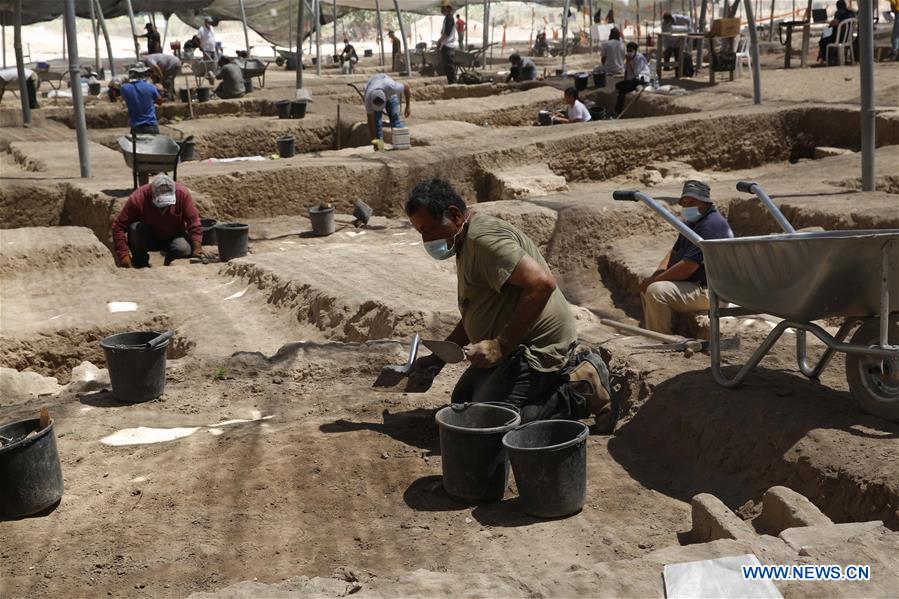
Workers work at an archeological site in central Israeli city of Yavne on Aug. 25, 2020. A rare trove of 425 pure gold coins, dating back to about 1,100 years ago, was discovered in central Israel, the Israel Antiquities Authority (IAA) said on Monday. (Photo by Gil Cohen Magen/Xinhua)
JERUSALEM, Aug. 24 (Xinhua) -- A rare trove of 425 pure gold coins, dating back to about 1,100 years ago, was discovered in central Israel, the Israel Antiquities Authority (IAA) said on Monday.
Most of the coins date to the Islamic Abbasid Caliphate, which stretched from Persia in the east to North Africa in the west, and whose center of power was in Baghdad, Iraq.
The coins, discovered in today's city of Yavne, were deliberately hidden in the ground inside a clay crus. The people who hid them even fixed the cruse with a nail so that it would not move.
As gold is a noble metal, resistant to corrosion and oxidation, the coins were found well preserved.
The treasure includes full gold dinars, as well as 270 small pieces cut from gold coins for use as "small change," as cutting gold and silver coins was typical in Islamic countries since the mid-9th century AD, with the sudden disappearance of the bronze and copper coins.
According to the IAA, the coins may indicate international trade with remote areas.
The total value of the coins, weighing about 845 grams all together, was considered significant for those days.
"For example, this was enough to buy a luxurious house in one of the best neighborhoods in Fustat, the rich Egyptian capital in those days," the archaeologists noted.
The trove also contains a fragment of a gold coin displaying the Byzantine emperor Theophilos, minted in Constantinople, capital of the Byzantine Empire.
"This is a rare material evidence of trade ties and wars between the Byzantine and Islamic empires," the archaeologists said. Enditem



